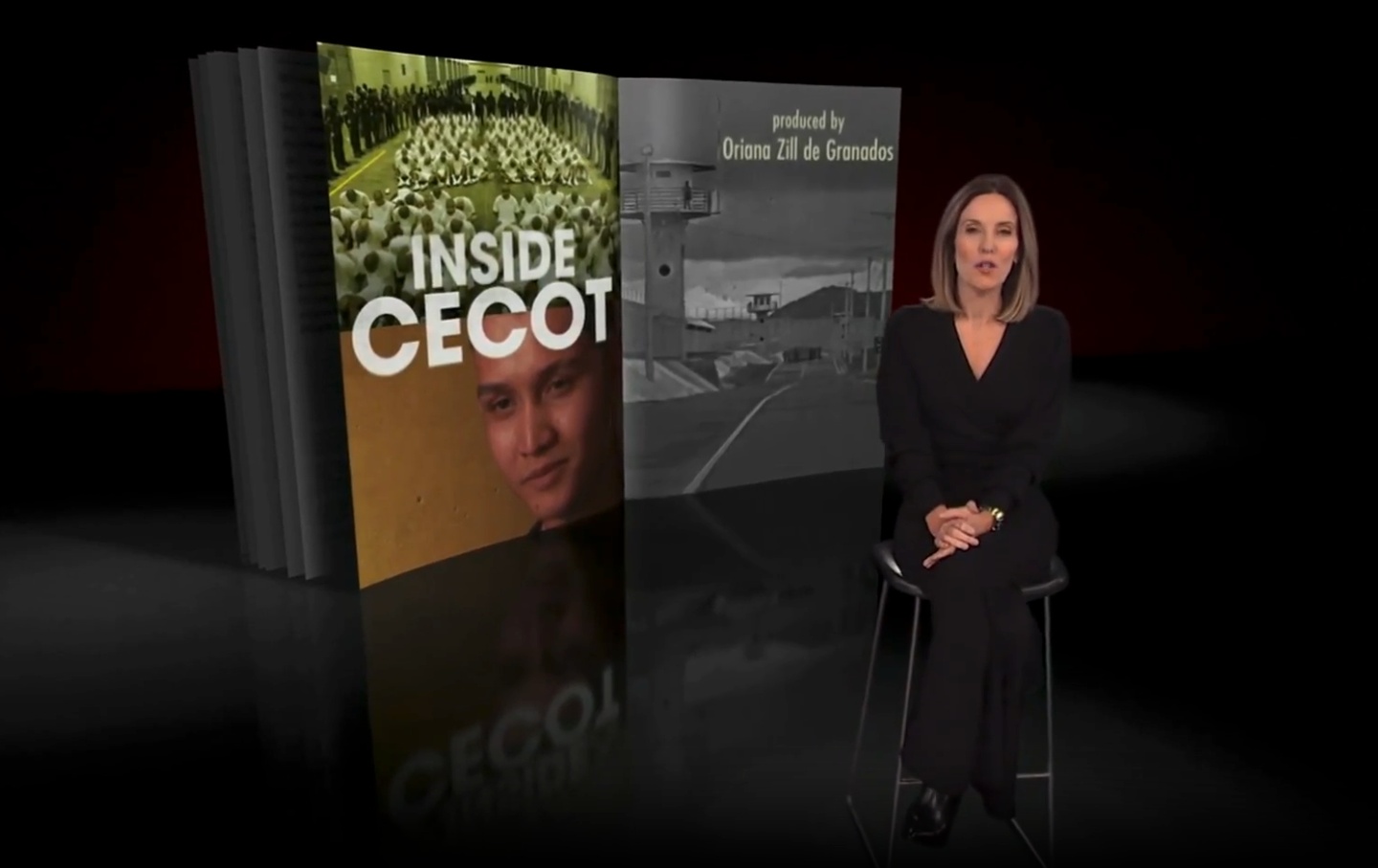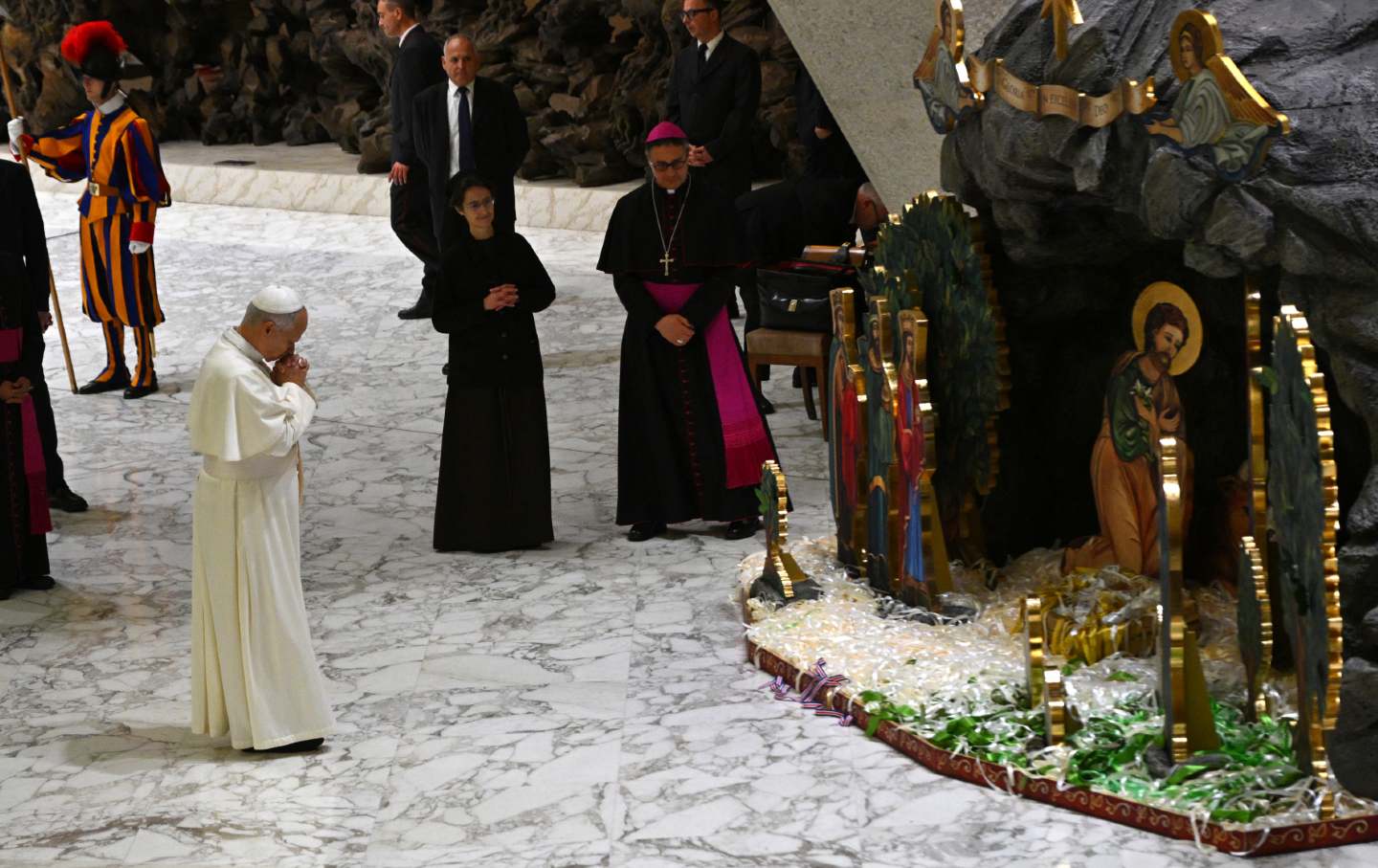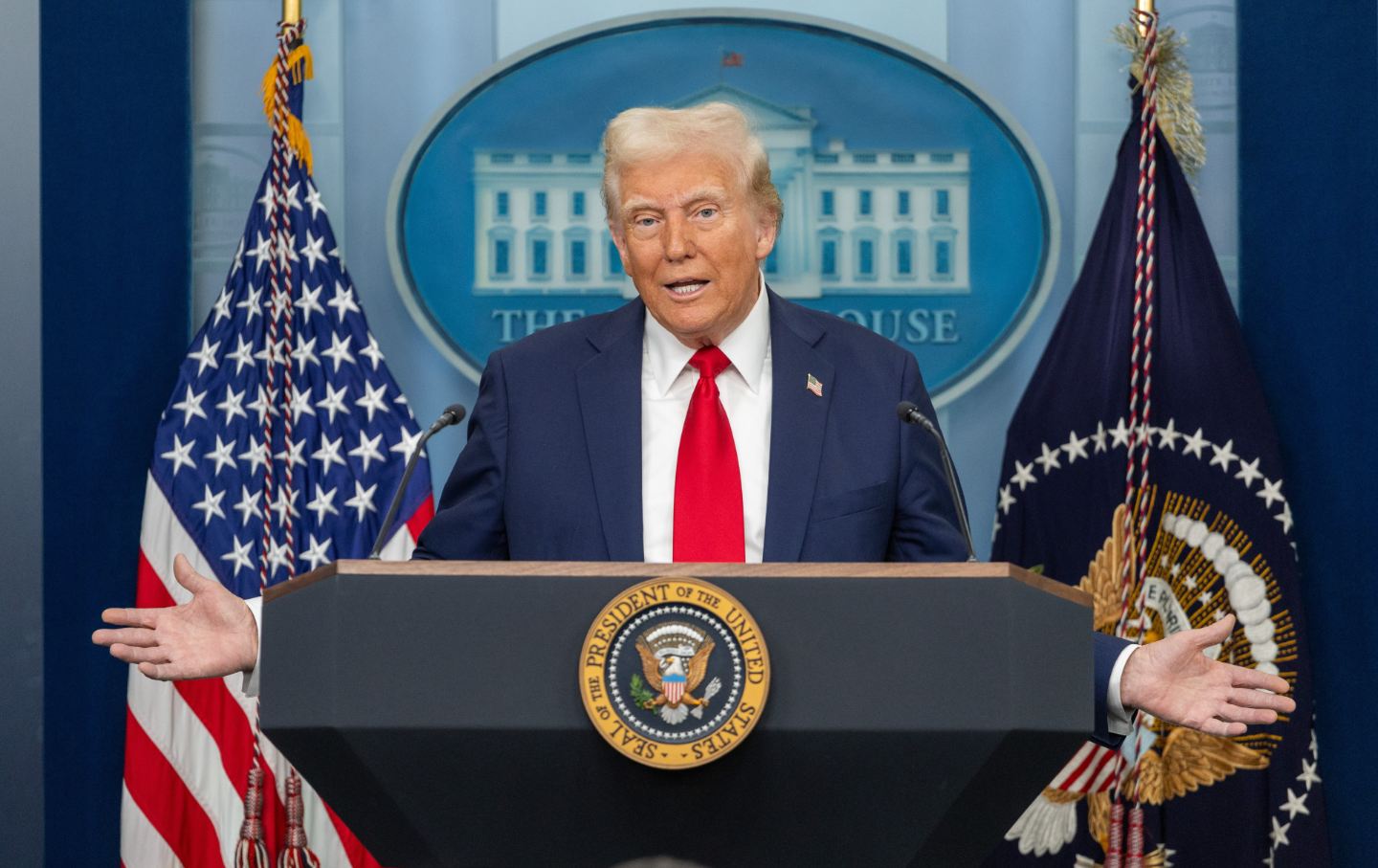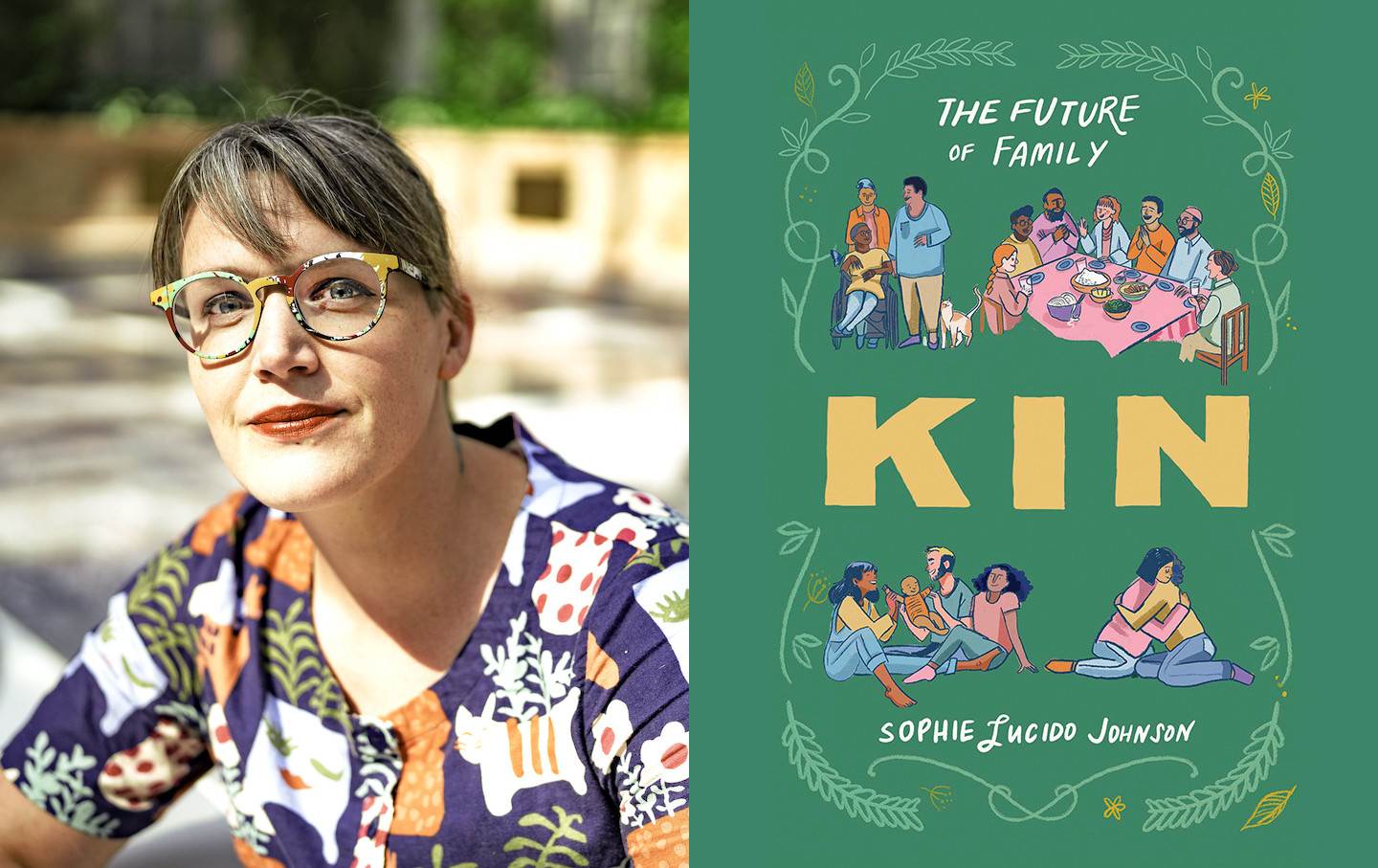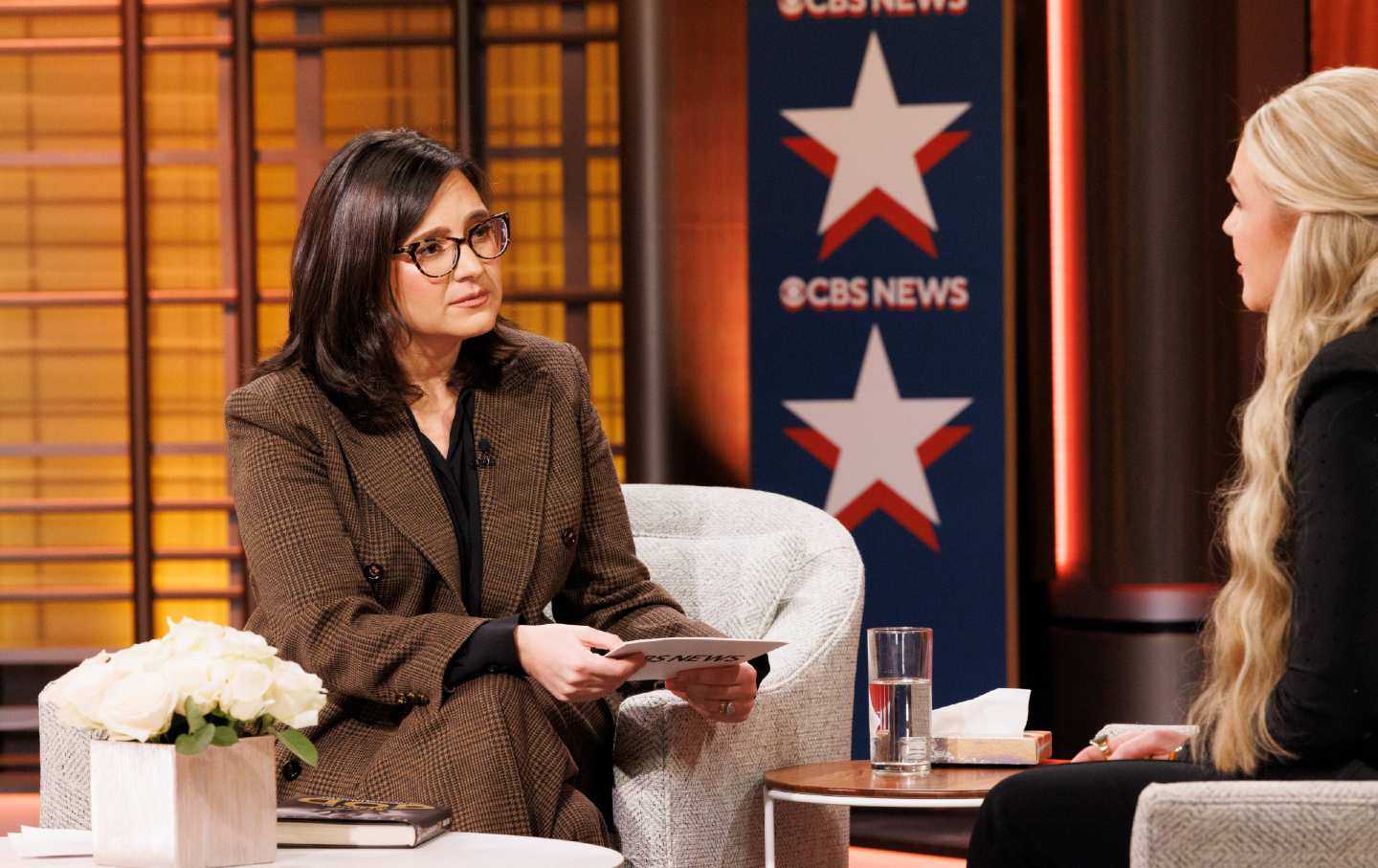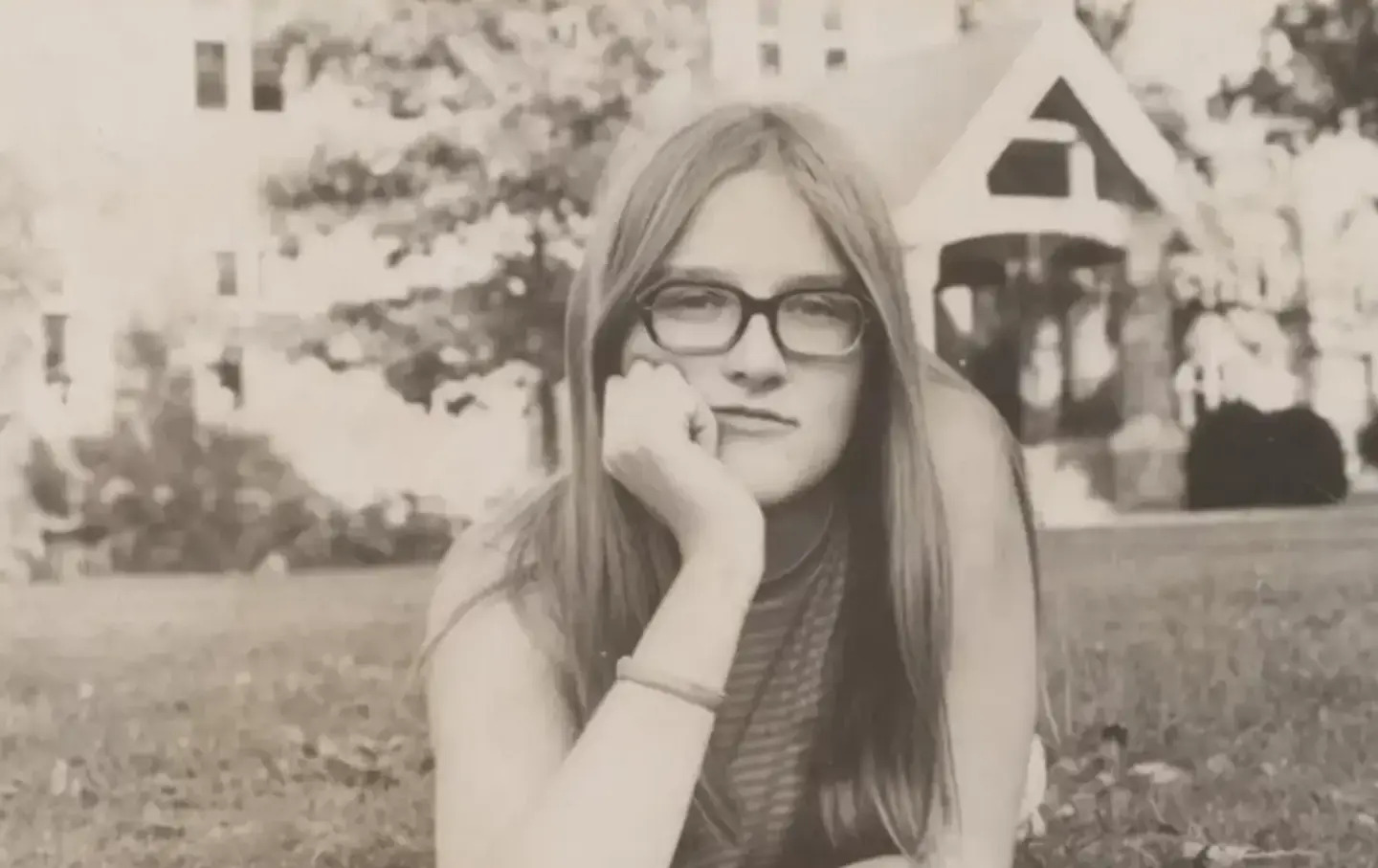
Drew Faust was the first woman president of Harvard, from 2007 to 2018. Before that, she was the founding dean of the Radcliffe Institute for Advanced Study, and before that, she was the Annenberg Professor of History at Pennsylvania State University. Now, she’s a member of the history department at Harvard. She’s the author of six books, including This Republic of Suffering: Death and the American Civil War. Her new book is Necessary Trouble: Growing up at Mid-Century. This interview has been condensed and edited.
Jon Wiener: I’ve read a lot of memoirs written by ’60s people and virtually all trace the origins of their activism to the same moment: the sit-in movement in the spring of 1960. But your epiphany, as you call it, the shock of recognition that spurred you to take your first political act, came well before 1960, although it did involve the civil rights movement. Tell us about your epiphany, and how old you were at the time.
Drew Faust: I was 9. My epiphany came as part of the aftermath of Brown v. Board of Education, and the upheaval in Virginia that was caused by the demand that schools be integrated—and the response from white Virginia politicians that this should be resisted. One day coming home from school, being driven by a Black man who worked for my family, I heard on the radio about some of the confrontations that were taking place around this issue of school integration. And I suddenly realized in the car at that moment that my school was all white for a reason. It wasn’t an accident.
I asked the Black man who was driving me, “Is it true that if I painted my face black, or if I were Black, I wouldn’t be able to go to my school?” He hemmed and hawed. He didn’t want to take the risk of being involved in a discussion about integration with a young white girl. But his evasion underscored for me that I was right.
JW: And what did you do with this realization?
DF: I wrote to the president. I got a piece of notebook paper from my school notebook, and I penned a letter to “Mr. Eisenhower,” as I called him. Recently, I asked the Eisenhower Library in Abilene, Kansas, if they could find it, and lo and behold, this wonderful archivist there found my letter. So I was reunited with that little girl.
JW: What was your argument to President Eisenhower in 1957?
DF: When I requested a copy of this letter from the archivist in Kansas, I anticipated that my arguments would’ve been from the Declaration of Independence. But they were actually very religious. I kept appealing to God, who loved all God’s children. Since I was writing the president, I guess I had to find some higher authority.
JW: In 1964, you left for college at Bryn Mawr. You write that Bryn Mawr in 1964 represented a peculiar sort of feminism. Please explain.
DF: Bryn Mawr was a place that believed in the ability of Bryn Mawr students to do almost anything. We could compete with any man. It was a feminism about us, but it didn’t urge us or open us to think about women as a category or to think about the ways in which women were subordinated in society. So when I graduated, we felt emboldened. But also we were so unaware of the hurdles that we were going to have to confront and the ways in which sexism was going to operate in our lives. That was what I would call Bryn Mawr feminism.
JW: There was this saying that I heard often in those days about Bryn Mawr: “Our failures only marry.” What’s the story there?
DF: Bryn Mawr had a fierce president in M. Carey Thomas, a woman wo grew up in a privileged family in Baltimore, was outraged when she couldn’t pursue graduate work in the United States, pursued it in Europe, and became the second president of Bryn Mawr. She was a lesbian, had lived in two open lesbian relationships, and she believed women could do anything. When I was at Bryn Mawr, the library was named after M. Carey Thomas. It’s since been de-named because she was an antisemite and a eugenicist along with being an avid feminist. But one of the sayings attributed to her was “Our failures only marry.” This was rendered sometimes as “only our failures marry.”
JW: That’s different.
DF: It is different. “Our failures only marry” gave us permission to marry, I guess. But it said, you better do something else with yourself as well.
JW: In 1964, your first year in college, you went to a meeting of SDS, Students for a Democratic Society. You read the Port Huron statement, which argued for participatory democracy. You learned about the SDS project to build an interracial movement of the poor. Tom Hayden was organizing in Newark; Bryn Mawr and Haverford SDS were organizing in South Philadelphia. This was SDS before Vietnam. And you went to work with the SDS South Philly project. Tell us a little about that.
DF: This project was dedicated to improving the well-being and the fortunes of the people who were impoverished in many cases and very close to the poverty line in others. We started with an issue that was intended to bring people together so that then they could ask for other things once they were organized. The issue we organized around was rat control. I spent much of the fall of 1964 in South Philly knocking on doors with my SDS teammates trying to persuade residents of South Philadelphia that they should join together as a community and demand rat control. And then, we thought, they’d go on and demand all kinds of other things.
JW: March 7, 1965, was Bloody Sunday on the Edmund Pettus Bridge in Selma. Civil rights people marching from Selma to Montgomery were attacked and beaten. One of them was John Lewis. You write, “I knew I had to do something.” What did you do?
DF: I went to Selma. There was a follow-up march. Martin Luther King had said America must bear witness and stand up against these atrocities that were inflicted on John Lewis and others. And I thought to myself, this is a moral challenge. If I don’t do something now, who am I? So my boyfriend and I borrowed a car and drove to Selma and marched over the Edmund Pettus Bridge in the march that Martin Luther King had called for.
JW: The very next month, April 1965, you went to what you call your first anti-war rally in Washington. Actually, it was everybody’s first anti-war rally in Washington. Organized by SDS. This was the turning point when all of us changed our focus to Vietnam. What do you remember about that day?
DF: Well, I remember people singing, folk musicians who I’d heard only on records, cherished records that I played in my dorm room. I remember a sense of urgency and solidarity. We had a sense that we were going to turn this around and that our voices would be heard, that people would listen to us, that we would be able to change things. And by the time I graduated from Bryn Mawr, only three years later, which seems like an eyeblink in my life now, but was of course an eternity when I was 18 years old—three years later, we were so frustrated because no one had listened to us at all. The war had escalated steadily. By the spring of my senior year, it seemed that maybe we could at least run a candidate. Johnson was out. But then by the summer, it seemed that was impossible. We went from the high point of spring ’65 to the frustration and alienation of ’68.
JW: You were old enough to vote in the 1968 election. Hubert Humphrey, Johnson’s vice president, was the Democratic candidate facing Richard Nixon. This was your first vote for president. Who did you vote for?
DF: I voted for Dick Gregory. African American comedian and anti-war activist, progressive in every way, and funny besides. When I voted for him, little did I know that what I found out as I was researching this book: I was one of two votes in my county for Dick Gregory, one of some 1,600 votes in the whole state of Virginia for Dick Gregory. I was not alone in choosing this.
JW: And what were you saying with your refusal to vote for the Democrat, Hubert Humphrey?
DF: All I was saying was give peace a chance.
JW: One last thing: the title of your book, Necessary Trouble. Where does that come from?
DF: “Necessary trouble” is a phrase of John Lewis’s. He said, “Make trouble, good trouble, necessary trouble.” At my last commencement as president, he gave the commencement address, and he turned to me at the beginning of his talk and said, “Thank you, Madam President, for writing to Eisenhower, and for making necessary trouble.” So the title is a bit of an homage to him. But it’s also a really accurate description of what my life was like as a young person in the ’50s and ’60s.
Listen to the full interview on the Start Making Sense podcast here.
Time is running out to have your gift matched
In this time of unrelenting, often unprecedented cruelty and lawlessness, I’m grateful for Nation readers like you.
So many of you have taken to the streets, organized in your neighborhood and with your union, and showed up at the ballot box to vote for progressive candidates. You’re proving that it is possible—to paraphrase the legendary Patti Smith—to redeem the work of the fools running our government.
And as we head into 2026, I promise that The Nation will fight like never before for justice, humanity, and dignity in these United States.
At a time when most news organizations are either cutting budgets or cozying up to Trump by bringing in right-wing propagandists, The Nation’s writers, editors, copy editors, fact-checkers, and illustrators confront head-on the administration’s deadly abuses of power, blatant corruption, and deconstruction of both government and civil society.
We couldn’t do this crucial work without you.
Through the end of the year, a generous donor is matching all donations to The Nation’s independent journalism up to $75,000. But the end of the year is now only days away.
Time is running out to have your gift doubled. Don’t wait—donate now to ensure that our newsroom has the full $150,000 to start the new year.
Another world really is possible. Together, we can and will win it!
Love and Solidarity,
John Nichols
Executive Editor, The Nation

